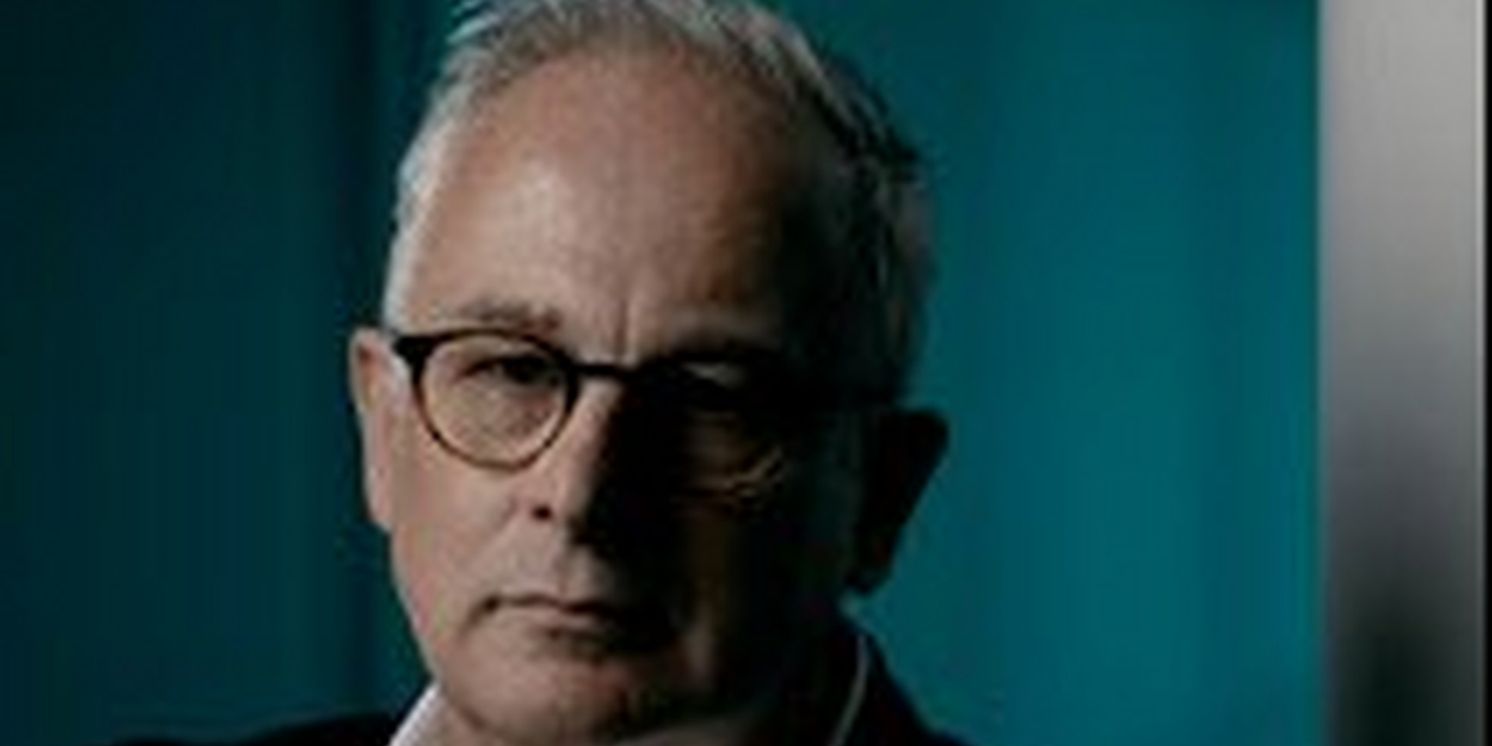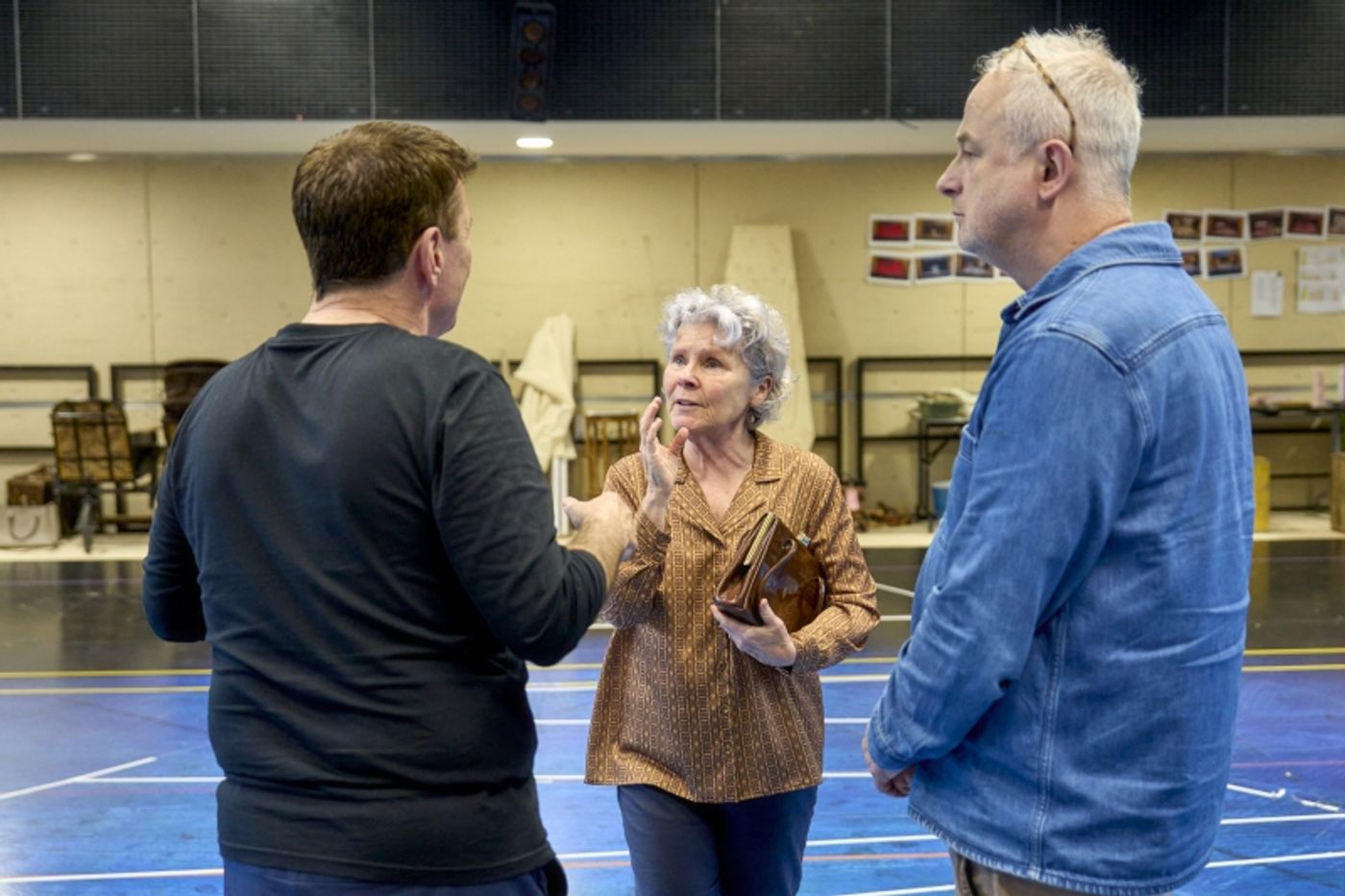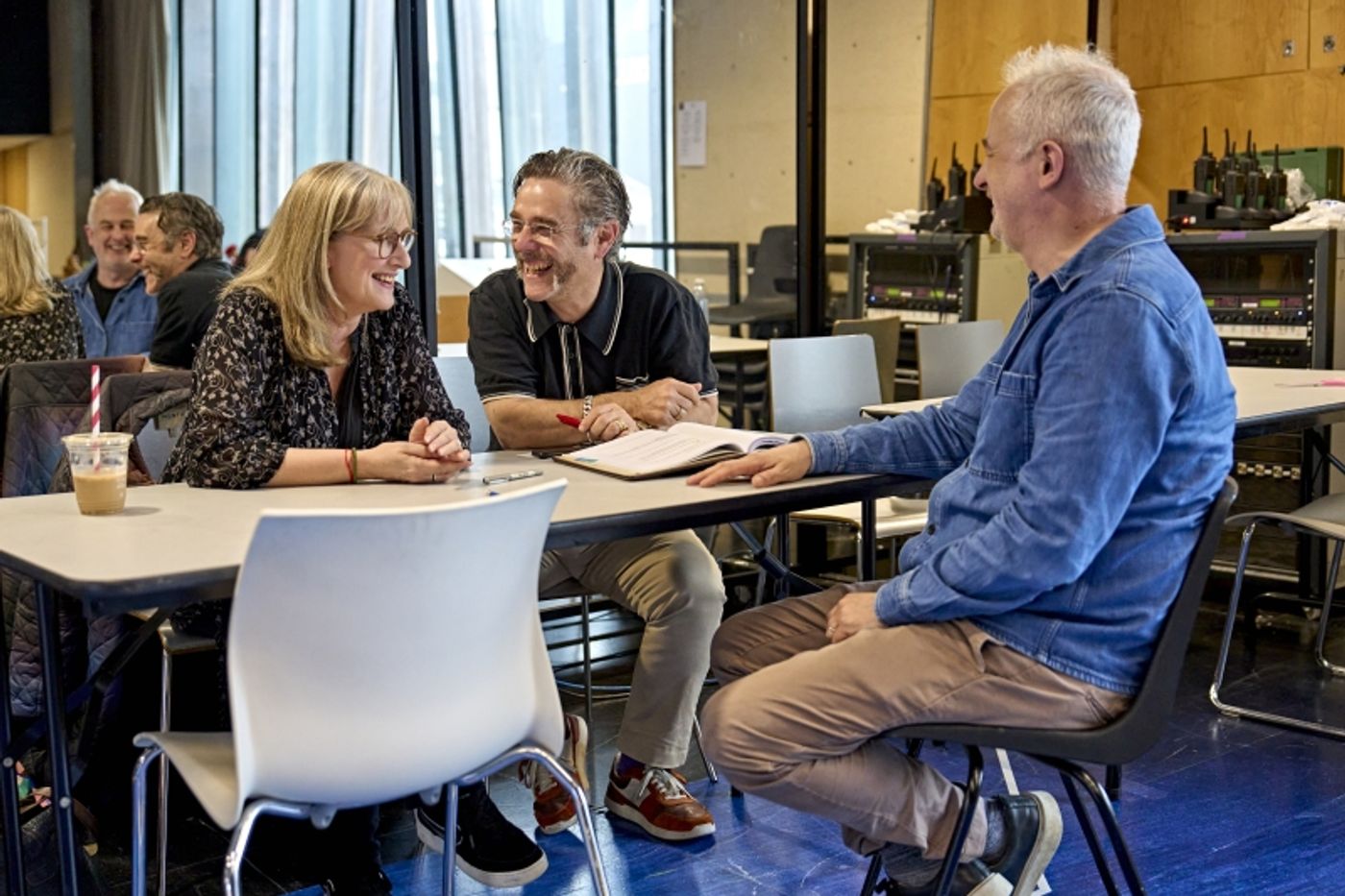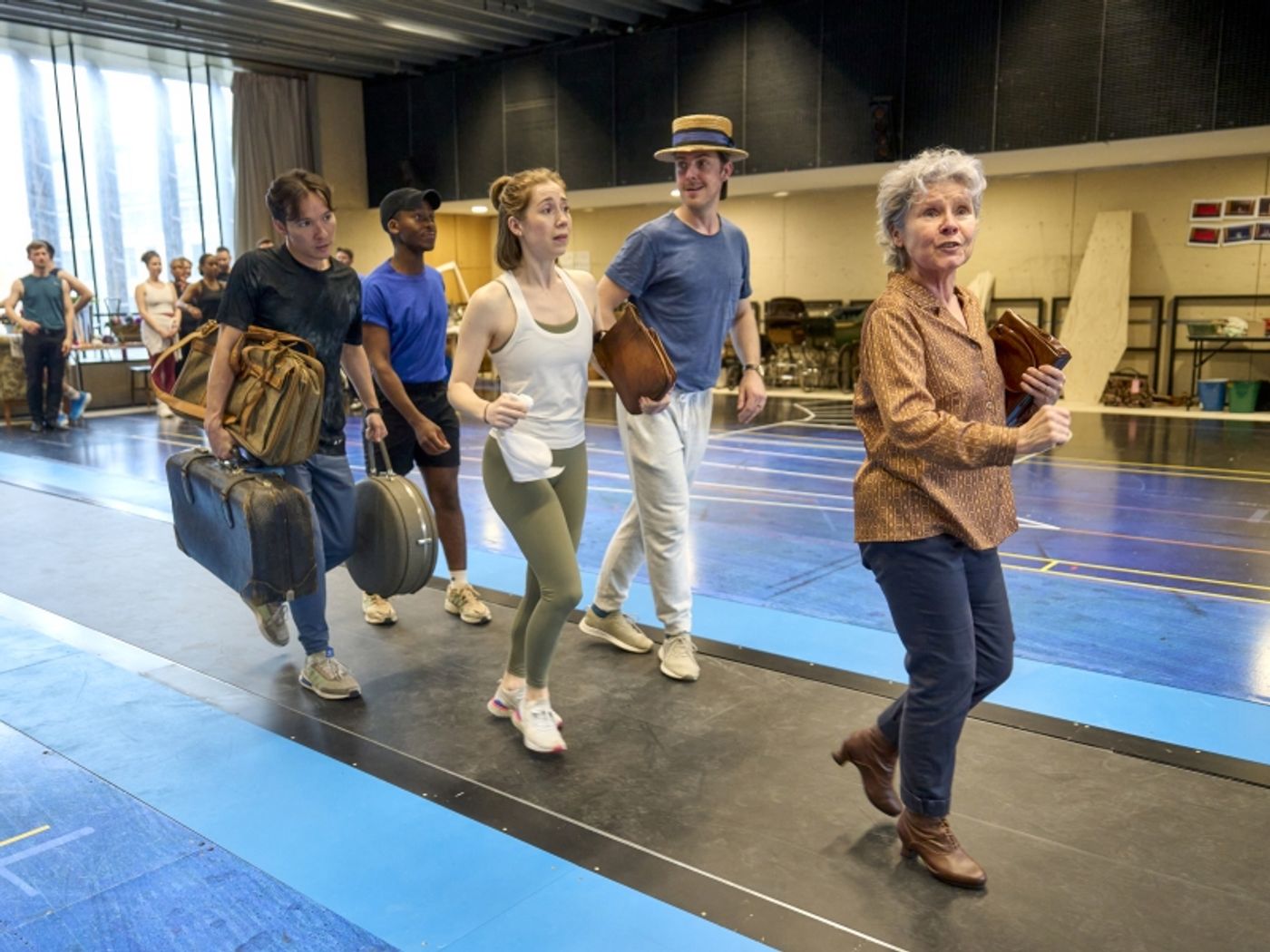Interview: 'It Feels Genuinely Uplifting': Director Dominic Cooke On Working With Imelda Staunton and The Long Wait For HELLO, DOLLY!
'What's beautiful about this show is that at its core . . . it really embraces and supports the idea that it's never too late to go out there'

Hello, Dolly!, the iconic musical from the 1960s, has returned to the West End for a brief 10-week season. The show stars Dame Imelda Staunton as “meddlesome socialite turned matchmaker” Dolly Levi, who is reunited with director Dominic Cooke after the 2017 National Theatre’s production of Follies.
BroadwayWorld sat down with Dominic Cooke to chat about directing the revival. We discussed what his career as a director has been like, what it has been like to take on this iconic musical and how the pandemic has had an effect on the work as a whole.
How did you first get involved in the world of theatre?
Well, I really liked going to see shows! As a teenager, I was taken by my school and my father, and my stepmother and just enjoyed it. I did an English and Theatre degree. I wasn't doing it with any professional goal in mind - I just wanted to study those two subjects! Soon after that, after I left university, I thought, “Oh, well, actually, I would quite like to have a go at being a director!” I'd done a bit of directing at university, but it wasn't part of the curriculum - I just did it as a student in the Drama Society.
What made you want to go into directing in particular?
I just enjoyed how multi-dimensional the job is! You have to have a visual sense, you have to be able to read, you have to be able to communicate. It's the most collaborative of jobs - you're at the centre of a lot of conversation about how to make something happen. I really enjoyed being part of a team in that way. I started doing it for fun as a student and I found that I felt at home doing it. So that was the germ of it. It wasn't like I'd ever really thought about it until I started doing it, and then I thought, “Oh, maybe I could do that!”

Photo Credit: Manual Harlan
You have a tendency to direct revivals of works, including The Crucible and Follies and now Hello, Dolly!. Is there something in particular that draws you to doing revivals?
Well, I've had a real mix of stuff! I was at the Royal Shakespeare Company for many years and I also ran The Royal Court Theatre, which is only new plays. So I spent an awful lot of time working with living writers on new plays.
In recent years, I've become more drawn to revivals. It's really if you see a way of doing something, or you feel that there's a resonance for the time in which you're living, whereby you can take a great play and offer it to an audience in a new way that I really enjoy. Normally, anything that's worth reviving has got some sort of core quality to it, and great works of art speak to us in different ways at different times. So it's normally a feeling about wanting to be part of that world and to communicate that with an audience today, and think about, “How do we do that in the best way?” It's a really exciting thing to do, especially if it's either not a particularly well-known play or it's a play that has a particular history and you can see another way of bringing it to light.
What was that core for Hello, Dolly! that you wanted to bring to audiences today?
I knew the piece from when I was a kid because my parents had the album of the movie, so I knew all the songs really well. I've seen productions, I've seen the movie. I've always thought that it's a comic show with a serious heart and that comes from Thornton Wilder, who was the creator of the original play [The Matchmaker], which the musical is based on. Jerry Herman and Michael Stewart really honoured what he did. Thornton Wilder was really big on understanding that comedy and heart, compassion, serious conversation are actually natural bedfellows. And this is a piece of work about three people coming back to life after terrible loss and reinventing themselves for the present.
There's a knock-on effect of Dolly Levi's action where her desire to put herself back out into the world as an older woman has a knock-on, and that affects Horace, and that affects Irene and all the other characters - there's this domino effect. I just thought it'd be really exciting - partly because I had this working relationship with Imelda Staunton on Follies - to get an actress who's known for quite serious things . . . She [Staunton] used to do comedy a lot, but I just thought would be really exciting to investigate it from that perspective. And that's how it came together and that's the way we've approached it.
Hopefully, we're still delivering on all the joy and comedy and fun of the show, but that is underpinned by an examination of what it is like to be someone who wants to put themselves out there in later life without shame or guilt, to make themselves vulnerable. And I think that's particularly relevant to the experience of some older people today. But something that's very hopeful and joyful - we really need that in the world right now!
This was an idea that's been going on before the pandemic. What has the creative process been like since the idea first came about?
It's been really great! I mean, it was very disappointing, obviously, but at that time, there were bigger worries, so we just went with it. And then what was great was that once we started coming back, getting back to life, we kept talking. Imelda was doing The Crown, so it was clear she wasn't able to do it for a while, but she was really serious about doing it when she could. So the conversation with Michael [Harrison], our producer, with the team, continued. We found a different theatre, which is in some ways a more sympathetic theatre for the show. Actually, the extra time’s been really good for the show! We've had a lot more time to think about it, to examine our original approach, to modify that a bit, the design and our overall aesthetic.

Photo Credit: Manuel Harlan
We've sat with it for a very long time. Imelda and I, in particular, have been talking a lot over that time - we've been constantly talking about what it is, what the role is, looking at the original play that it's based on, looking at the movie, thinking about all the different approaches that have been to the material and looking at all of that, getting it into our bones.
By the time we started rehearsal, we were inside it all! And weirdly, I think that the world is in a more fragmented and dark place right now and the message of the show is more needed than ever. So in some ways, the timing has worked well for us in the long term. Eventually, it all worked out. But it's been a good process! The rehearsals have been very pleasant, very enjoyable. A great company - really committed! It's been very positive.
I was going to ask - how have the rehearsals been going?
They've been good! We've had a decent amount of time, which is such a privilege. That's the most important thing for me - having the time to try things out, to be able to explore a bit. I like creating in the room. I obviously come in with an idea, but I am not rigid about that - I like to see what happens, it’s more organic. If you've got a little bit more time, you can do that. It's been really positive.

in rehearsal. Photo Credit: Manuel Harlan
Imelda’s a great leader of an acting company because she's very generous to everyone. She takes care of everyone but she also sets a very high standard. She works incredibly hard and that's really great for the people in smaller roles to watch and learn from and look up to. It just sets a really good temperature. I feel like I'm working with her, leading the company and leading the show together, which is a lovely thing. It's a really nice thing.
Do you have any particular favourite scenes that you've been working on?
Oh, gosh! It's hard to say- they're all really good scenes. I think we always had a feeling about the title song and how to do it. We're remembering this is a woman who has been locked away in grief for a very long time and never really imagined she would go back to the life she had with her late husband. The restaurant that she walks into when she does that number was a place they used to go to every week and it's full of memories and friends that she hasn't seen for a very long time. We just wanted to honour that and I think we have. We created backstories and relationships between her and all the waiters and the world she goes into, and it's very touching. In terms of satisfaction of what we've done and how that's coming together, I think that moment is one of my favourites in the show.
What is it like to be bringing this show to a stage like the London Palladium?
Well, it's a bit daunting in some ways, but on the other hand, for such a big theatre, it's so brilliantly built! It was designed by this British theatre designer, Frank Matcham [1854-1920], and he was one of the best - he really understood the dynamics of audience and stage. And it’s amazing because it is a very big theatre, but you feel connected when you're on stage. Although there are things you have to do on big stages - you have to think in a particular way about putting a show on a big stage - it's got a lovely feeling of connection. So actually, it's a really lovely place to work! It's a beautiful space to work in.
Some theatres, you have to fight them a bit and bash them into shape to get the show to work. But not this theatre - it's a very natural space. And a natural space for a big show like this, as well! Fortunately, our producer’s given us the resources to do something of scale - the design is big! I don't feel like we're exposed. If we didn't have those resources, it would be harder to make it work on such a big, big, big stage.
What do you hope audiences take away from this production of Hello, Dolly!?
That there's always hope and that it is possible to reinvent your life, even after things go badly wrong. The show takes place pretty much over one day, so you're seeing this moment that people are beginning to go back into the world, but there's this backstory of sadness and loss. As you get older, it's quite hard to imagine yourself in a new way, once, say, you lose your partner or something big happens to you. What's beautiful about this show is that at its core, and I'm talking about our production as a piece of work, it really embraces and supports the idea that it's never too late to go out there. And that takes courage! A lot of people find that hard, but it is a really useful thing to remember. So I think that's the main message of the show.
And finally, how would you describe Hello, Dolly! in one word?
Joyful! It's nice to do something joyful because a lot of shows I've done over the years have been quite dark. It's lovely to do something, especially right now, where you feel the spirits lift. You're watching these amazing dancers and beautiful music.
Jerry Herman did, as a composer, have an amazing capacity for joy in what he did, and that's easier said than done! It doesn't feel schmaltzy - it just feels genuinely uplifting. That is an amazing thing. It's a lovely thing to be around, and it’s infectious!
Hello, Dolly! runs until 14 September at the London Palladium.
Powered by
|
Videos

